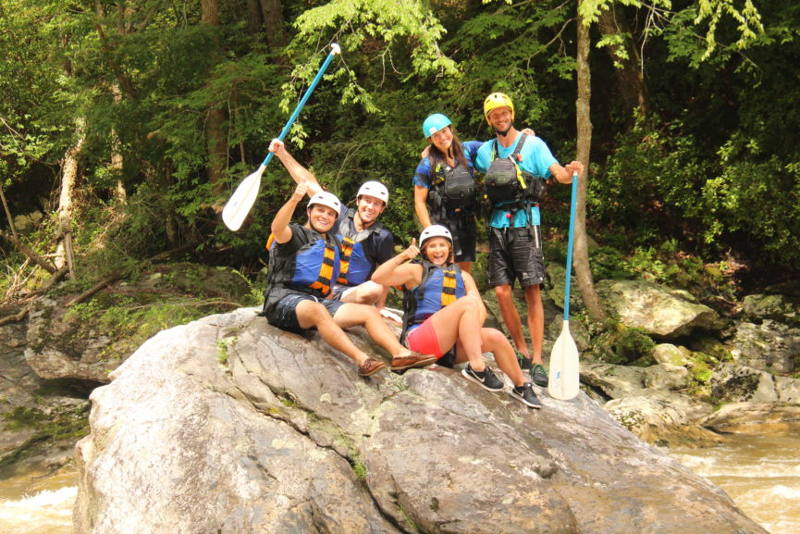Learning to focus in modern culture is hard and getting harder.
We are faced daily with greater levels of distraction. Unfortunately, most of these distraction are not only allowed by us—they are welcomed by us. Outdoor adventure helps us to refocus by realigning our thoughts, removing most of our everyday distractions, and giving us time to reflect on our experience.
1. Realigning our Thoughts.
Adventuring outside is unusual, different, outside of our everyday norm. It also produces nervousness and sometimes insecurity (try wearing a wetsuit for the first time in front of 30 strangers). Even sitting in a zipline harness or imagining sitting in a zip line harness can be nerve racking for the first time. As uncomfortable as being nervous is, it is the first step in realigning our thoughts. By being confronted with our safety, we are forced to more appropriately view the gravity of everyday situations.
After working through safety as a priority, we next begin to view our new surroundings and focus on skills. Even though this is a progression in learning to focus, it is also part of moving past just focusing on your well-being. In the Wildwater Adventure world, we help this transition through providing appropriate information before our Guests arrive onsite and in pre-trip orientation talks. These pre-trip talks focus on further introducing Guests to their new surroundings.
After processing safety and working to development skills required in new surroundings, we progress to experience. Experience is what focus is all about—it is where “managing” the experience, in other words, being able to proficiently exist in a situation, meets “pursuit”—reaching new goals or levels of achievement. In common vernacular it is the tension between “Being” and “Doing”. We see this happen at the end of our adventures when Guests are able to rest and be together after achieving their goal.
2. Removing Distractions
I know what your rebuttal is going to be: that step 1 is just a summary of everyday life… that is true; however, the magic of outdoor adventure in learning to focus is in the second part—we intentionally remove distractions! The very nature of outdoor experience forces you to leave behind email notifications and petty arguments. Removing distractions in a new situation forces us to address our priorities in appropriate order and gives a greater satisfaction in the experience. Removing distractions also forces us to embrace the uncomfortable nature of a new experience. Embracing the uncomfortable brings a renewed and deeper focus into the experience allowing us to pursue our goals further.
3. Reflecting on the experience
For many of our rafting and zip lining trips this comes through viewing photos together at the end of the day or riding the bus back to the Adventure Center. These opportunities of reflection allow for us to plan better for the future and even give a greater respect for others around us. Sometimes this reflection comes in the form of silence and sometimes excitement. Still, it is important is to not introduce distractions too quickly after the experience and reduce the time of reflection.
Especially in the outdoor adventure world, we want to quickly post our photos from our Ocoee trip or text someone about our zipline experience. While sharing the experience with others is great, it has a tendency to cheapen the experience itself and shortcut the focus that comes through outdoor adventure. So, make a plan to leave the phone on airplane mode for a little longer and enjoy your time with those around you.
In Conclusion
Outdoor adventure teaches 3 main lessons about focusing better: realign thoughts, remove distractions, and reflect on the task or experience. By practicing these skills through outdoor adventure where they happen naturally—we become more comfortable in learning to focus better in everyday tasks and experiences. We can teach ourselves to realign our priorities in difficult tasks, to remove the distractions that take away our focus, and to reflect on our experiences. Through outdoor adventure we become better people.

